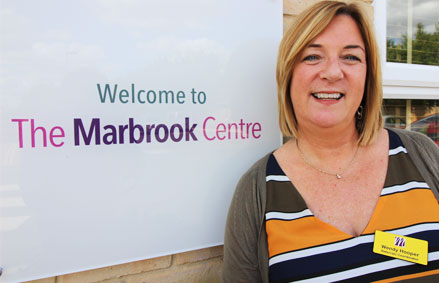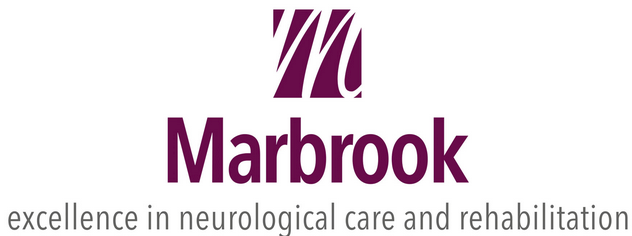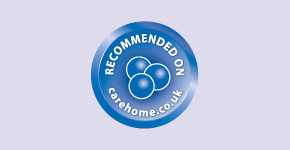Jargon Buster

We at The Marbrook Centre, with our fellow professionals at the National Health Service love an acronym (NHS!) So if we ever fall into the bad habit of using abbreviations in conversations, please tell us to stop. Meanwhile, here is a useful A to Z ‘health-speak’ guide.
ABI
Acquired Brain Injury Acquired brain injury (ABI) is brain damage caused by events after birth, rather than as part of a genetic or congenital disorder such as fetal alcohol syndrome, perinatal illness or perinatal hypoxia.[1] ABI can result in cognitive, physical, emotional, or behavioural impairments that lead to permanent or temporary changes in functioning.
AHP
Allied Health Professional
ALS
Amyotrophic Lateral Sclerosis also known as Motor Neurone disease (MND)
CQC
Care Quality Commission – the independent regulator of health and social care in England, who monitor, inspect and rate hospitals, GPs and care homes, for their fundamental standards of care. These inspections are then rated as Outstanding, Good, Requires Improvement or Inadequate.
CQUIN
Commissioners for Quality and Innovation – are targets local NHS commissions can set, to drive and reward excellence for achieving specific care goals.
DoLS
Deprivation of Liberty Safeguards – are amendments to the Mental Capacity Act 2005, allows restraint and restriction to be used, but ONLY if they are in the person’s best interest.
FTD
Frontotemporal Dementia, original known as Pick’s disease.
LD
Learning Disability – living with a learning disability means you find it harder to learn certain life skills.
MDT
Multi-Disciplinary Team – a group of clinical professionals working together to provide the best care programme.
MH
Mental Health
MMSE
Mini Mental State Examination – is a sensitive and reliable 30 point questionnaire that can help to establish the level of cognitive impairment.
MND
Motor Neurone Disease – is a rare condition that progressively damages parts of the nervous system, leading to muscle weakness and wasting.
MTC
Major Trauma Centre – 26 established in England of which 22 treat adults, each linked to a number of supporting Trauma Units (TUs)
OT PEG
feeding Percutaneous Endoscopic Gastrostomy – is a way of introducing food and fluids via a thin tube passing through the skin and into the stomach.
PRN
Pro Re Nata – is a Latin phrase describing medicines that are taken ‘as needed’.
RC
Responsible Clinician – is the person who has overall responsibility for the care and treatment of an individual being assessed and treated under the Mental Health Act.
RM
Rehabilitation Medicine
RMN
Registered Mental Health Nurse
RN
Registered Nurse
RP
Rehabilitation Prescription – a document detailing the rehabilitation needs of a severely injured individual.
RR&R
Recovery, Re-enablement and Rehabilitation
SaLT
Speech and Language Therapist – assess and treat speech, language and communication problems.
SOVA
Safeguarding of Vulnerable Adults – is to protect any person aged 18 or over from abuse. Forms of abuse include; physical abuse, psychological or emotional abuse, financial abuse, neglect, professional abuse, sexual abuse, racism and sexism. The Cambridgeshire Adult Safeguarding Team can be contacted on 0345 045 5202 or Cambridgeshire.direct@cambridgeshire.gov.uk
SRP
Specialist Rehabilitation Prescription – a document detailing the rehabilitation required for those with more complex needs.
TARN
Trauma Audit Research Network Trauma
CAG (NHS)
Clinical Group for Major Trauma – which reports recommendations to the Department for Health (England) for a coordinated pathway of care.
TUs
Trauma Units
MTC
Major Trauma Centres.
UKROC
United Kingdom Rehabilitation Outcomes Collaborative – the national database for specialist rehabilitation.

Our latest news
It’s Music To Our Ears…
The Marbrook Centre recently partnered with The Cambridge...
The importance of resident activities
At The Marbrook Centre we understand how important it is...
Lizzie talks to us about COVID prevention at The Marbrook Centre
We caught up with Lizzie, Project Coordinator at The...
The Marbrook Centre is making headway!
The Marbrook Centre team are delighted to announce that...
Meet Harley…
Meet Harley, dedicated and fun-loving Team Leader at The...



